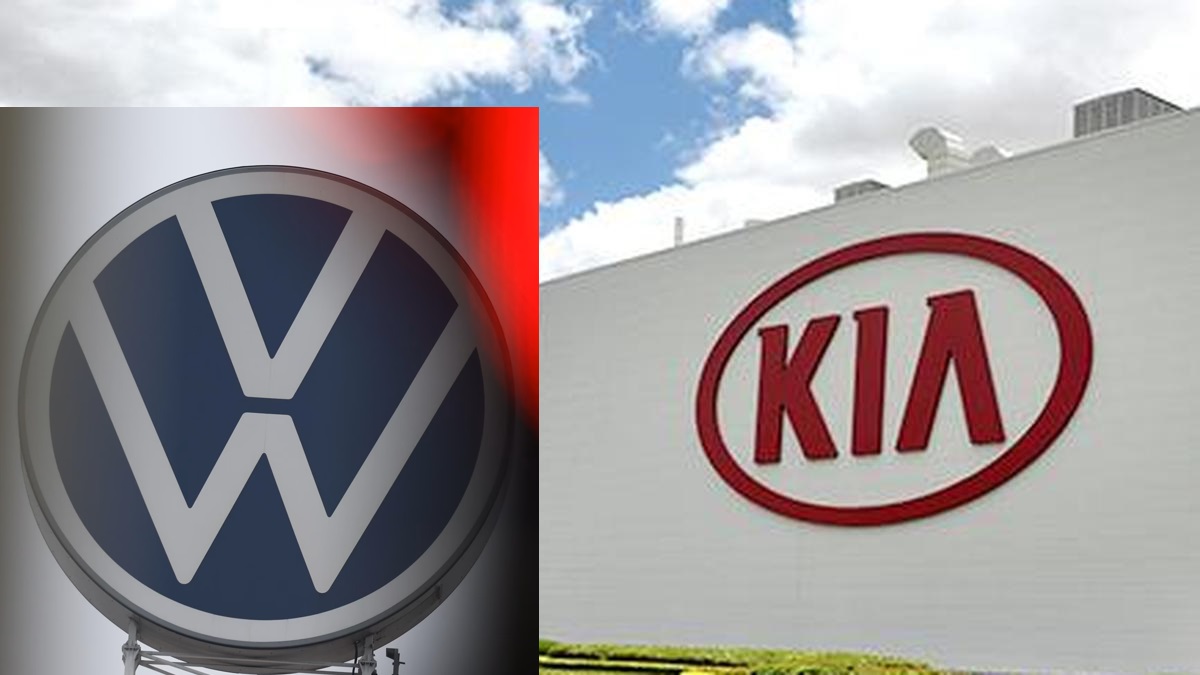Table of Contents
ToggleHow Import Duties and Foreign Investment Clash with 'Make in India' Goals
Context of the Tax Demands: A Battle Over Import Duties
The Indian government has issued staggering tax demands to two automotive giants—Volkswagen and Kia—accusing them of tax evasion by misclassifying imported components. Volkswagen faces a $1.4 billion tax notice, while Kia is grappling with a $155 million claim. These demands stem from allegations that both companies avoided higher import duties by categorizing their imports as individual parts instead of CKD kits.
The dispute highlights the tension between India’s push for local manufacturing under its ‘Make in India’ initiative and the challenges faced by foreign companies navigating the country’s complex tax regulations. The outcome of these cases could significantly impact foreign investment in India’s auto industry.
Key Points of the Dispute: CKD Kits vs. Individual Parts
1. Classification of Imports
CKD (Completely Knocked Down) Kits : CKD kits include major components like engines, transmissions, and chassis, which are imported together and require minimal assembly in India. These kits attract higher import duties (30-35%) because they involve less local value addition.
Individual Parts : When parts are imported separately, they are taxed at lower rates (5-15%). This classification incentivizes local manufacturing and aligns with India’s ‘Make in India’ goals. However, authorities argue that some companies misuse this distinction to evade higher taxes.
2. Volkswagen's Strategy :
Volkswagen has been importing parts in a staggered manner over several days, using an ERP system to manage and forecast its requirements. The company argues that these imports qualify as individual parts, attracting lower import duties. However, tax authorities claim that these shipments collectively form CKD kits and should be taxed at the higher rate.
3. Kia's Strategy :
Kia is accused of importing components for its Carnival minivan in separate lots through multiple ports, allegedly to reduce its duty liability. Like Volkswagen, Kia maintains that its imports are correctly classified as individual parts and not CKD kits.
Concerns and Questions for India: Balancing Foreign Investment and Domestic Goals
1. Impact on Foreign Investment
The massive tax demands on Volkswagen and Kia have raised concerns about India’s regulatory environment. Repeated high-profile cases of tax evasion allegations could deter foreign investment, as companies may perceive India as having an unpredictable tax regime. Volkswagen has already warned that the 1.4 billion notice could jeopardize its its 1.5 billion investment in India.
2. Legal and Regulatory Clarity
The disputes underscore the need for clearer and more consistent tax regulations. Ambiguities in classifying imports have led to prolonged legal battles, creating uncertainty for businesses. For instance, Volkswagen claims it had government approval for its “part-by-part import” model as early as 2011, but the recent notice contradicts this stance. Clearer rules could help prevent such disputes and boost investor confidence.
3. Domestic Manufacturing Goals
The government’s stance on higher duties for CKD kits aligns with its ‘Make in India’ initiative, which aims to boost local manufacturing. However, balancing this goal with fair treatment of foreign companies is crucial to maintaining a healthy investment climate.
What Companies Are Doing and Why It's Controversial
Volkswagen's Approach
Volkswagen is contesting the $1.4 billion tax demand, arguing that its imports are correctly classified as individual parts. The company has sued the Indian authorities, claiming the notice contradicts import tax rules. If Volkswagen can prove significant local value addition and proper classification, it may have a valid defense. Otherwise, the courts may side with the tax authorities, setting a precedent for how import duties are applied.
Kia's Situation
Kia is similarly fighting its $155 million tax notice, submitting detailed documentation to contest the claim. The company denies any wrongdoing and argues that the issue stems from differing interpretations of tax rules. The outcome of Kia’s case could influence how other automakers approach the classification of CKD kits and individual parts.
A Test for India's Business Environment
The outcome of these disputes will depend on the evidence presented by Volkswagen and Kia and the courts’ interpretation of India’s tax laws. The broader implications for India’s investment climate and regulatory framework are significant. Striking a balance between encouraging local manufacturing under the ‘Make in India’ initiative and maintaining a fair business environment is essential.
These cases serve as a reminder of the challenges foreign companies face in navigating India’s complex tax landscape. Clearer regulations and a more predictable tax regime could go a long way in boosting foreign investment and ensuring the success of India’s manufacturing goals.

Jugaad on Two Wheels: The Hilarious Bike Parcel Hack in Karnataka
The Great Karnataka Bike Parcel Hack: A Jugaad Masterclass #RapidoParcel: In a creative yet controversial move, ride-hailing platform Rapido has found a way around Karnataka’s

Denmark’s Digital Sovereignty Revolution: Linux and LibreOffice Lead the Way
Introduction to Denmark’s Bold Move In June 2025, Denmark’s Ministry of Digital Affairs made headlines by embracing digital sovereignty, ditching Microsoft Windows and Office 365

🏏Sports as a Business Strategy: Insights from Vijay Mallya’s RCB Ownership
🧠 Sports as a Business Strategy (Tool) In modern business, few platforms offer better engagement and emotional connection than sports. From football clubs in Europe

🙏 Apologies in Leadership: Vijay Mallya Public Apology
🧠 Introduction: The Role of Apologies in Leadership In the corporate world, apologies aren’t signs of weakness—they’re strategic acts of leadership. When made with sincerity

Audiobook Production Costs: Navigating Recording Artists, Studio Expenses, and AI’s Impact
The audiobook industry is booming, with over 130 million listeners in the U.S. alone in 2021 and a growing global appetite for audio content. Producing

Media Trial of Vijay Mallya: How Public Perception Shaped Vijay Mallya’s Legacy
Introduction: Media’s Influence on Business Narratives In today’s hyper-connected world, media narratives can make or break a business reputation. For Vijay Mallya, once known as

